Nikolas Cruz sentencing trial updates: Gunman stays in touch with Sandy Hook victim's mother
FORT LAUDERDALE — Jurors returned to a Fort Lauderdale courtroom Monday for what's expected to be the final stretch in the sentencing trial of Nikolas Cruz, the Parkland school gunman.
Cruz pleaded guilty in 2021 to killing 17 people and wounding 17 others at Marjory Stoneman Douglas High School on Feb. 14, 2018. Prosecutors are seeking the death penalty.
A 12-person jury will recommend whether Cruz, then 19 and now 24, is put to death or sentenced to life in prison. If it recommends death, a move that must be unanimous, Circuit Judge Elizabeth Scherer will make the final ruling.
Cruz's team of public defenders rested its case on Sept. 14, setting the stage for prosecutors' rebuttal and closing arguments over the coming weeks.
The Palm Beach Post is covering the daily proceedings live. Follow below for updates throughout Monday, Oct. 3.
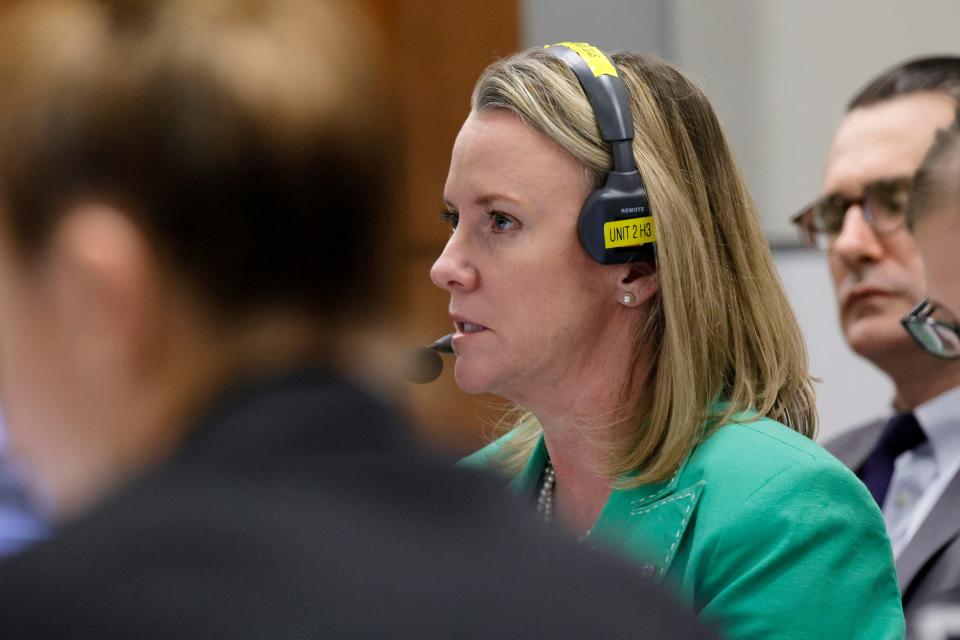
'He dreams of killing others': Witnesses say Nikolas Cruz's childhood marked by paranoia, aggression
Time hasn't healed Parkland's wounds: Lives of victims' families marked by absence, anguish, sorrow
Nikolas Cruz, Parkland gunman, has jail calls with Sandy Hook victim's mother
Assistant Public Defender Tamara Curtis pushed back against the notion that Cruz exhibited signs of sophisticated thinking. Oversights and systemic failures brought Cruz's plan to fruition, she said. Not his own intelligence.
"It's just through a series of unfortunate omissions it was carried off," Curtis told the judge. "He just got — I hate to say this. He got lucky, and we all got unlucky."
While cross-examining forensic psychologist Charles Scott, Curtis walked jurors yet again through Cruz's troubled past, pointing to his low IQ and challenging Scott's assessment that the gunman showed signs of academic improvement.
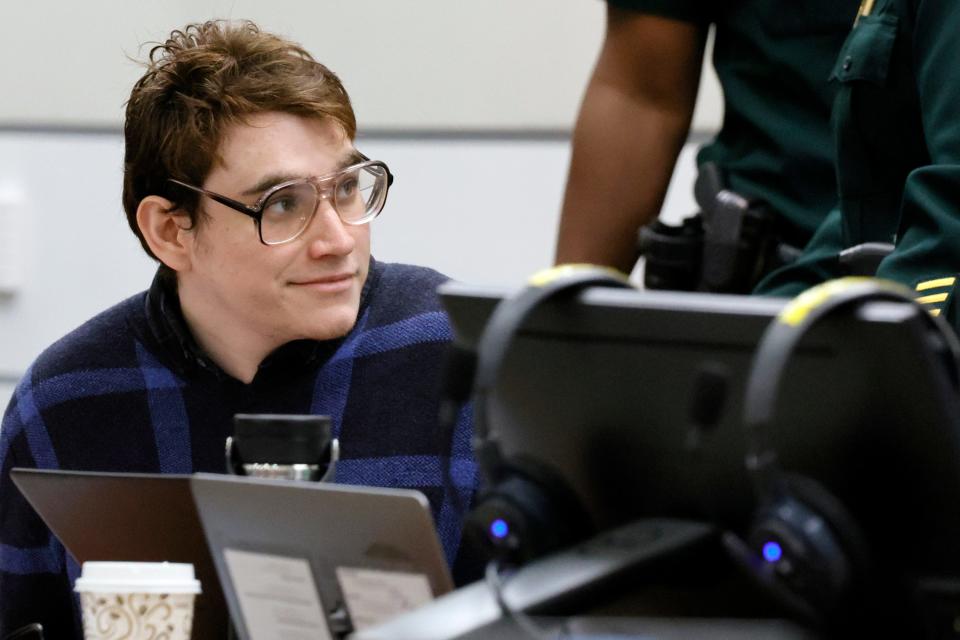
She read aloud pieces of Cruz's internet history from a month before the shooting.
"Why can't I feel emotions anymore? Why can't I cry?" she said. "Tom and Jerry suicide. Dead inside."
Curtis asked Scott if he knew that Cruz sometimes makes meowing sounds during his phone calls from jail, to which the doctor nodded.
"It's a humorous thing, not a mental illness thing," Scott replied.
He said he was also aware that Cruz has been visited by a woman named Scarlett Lewis, whose 6-year-old son was shot to death inside of Sandy Hook Elementary School in 2012.
Scott didn't elaborate on the nature of their conversations, but said Lewis and Cruz end each call by saying, "I love you."
Anatomy of a manifesto: What Cruz videos say about his executive function
Over the defense’s objection, jurors watched the videos Cruz filmed on his cellphone days before the shooting again.
“Hello, my name is Nik,” he said in one. “I’m going to be the next school shooter of 2018.”
His goal was to kill at least 20 people, Cruz said. He knew the weapon he’d use and how he'd bring it to Marjory Stoneman Douglas High School in the back of an Uber. He knew how students would “run in fear and hide” when he opened fire, and that his face would appear on the nightly news for weeks after.
“From the wrath of my power, they will know who I am,” he said.
This isn’t impulsive aggression, said forensic psychologist Charles Scott, who returned to the witness stand Monday, his testimony cut short last week by Hurricane Ian. This is “predatory.”
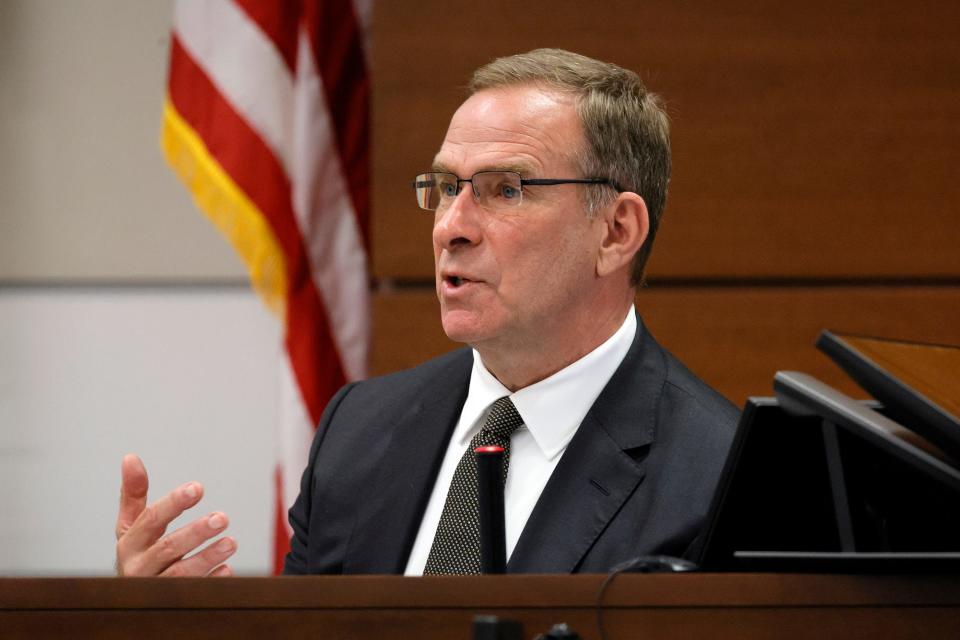
“Days in advance, he appreciated — he had the abstractive ability — to know how this would be perceived in the community,” Scott told jurors.
“He's calm. He's organized. He's speaking slowly. He's saying what he's going to do, how he's going to do it, where he’s going to do it, what year he’s going to do it.”
Cruz’s careful deliberation belies what other expert witnesses have said about his cognitive function, Scott said, casting doubt over the defense’s claims that fetal alcohol syndrome warped his brain beyond repair.
Even the day of the shooting — Valentine's Day — was intentional, Scott said. Cruz told him he chose the holiday "because he had no one to love, or no one to love him." He suggested to the doctor that he had hoped one of his victims would hug him, Scott said.
They didn't. Instead, the looks on some of their faces were "nasty," Cruz said in a recorded interview with Scott. So he shot them.
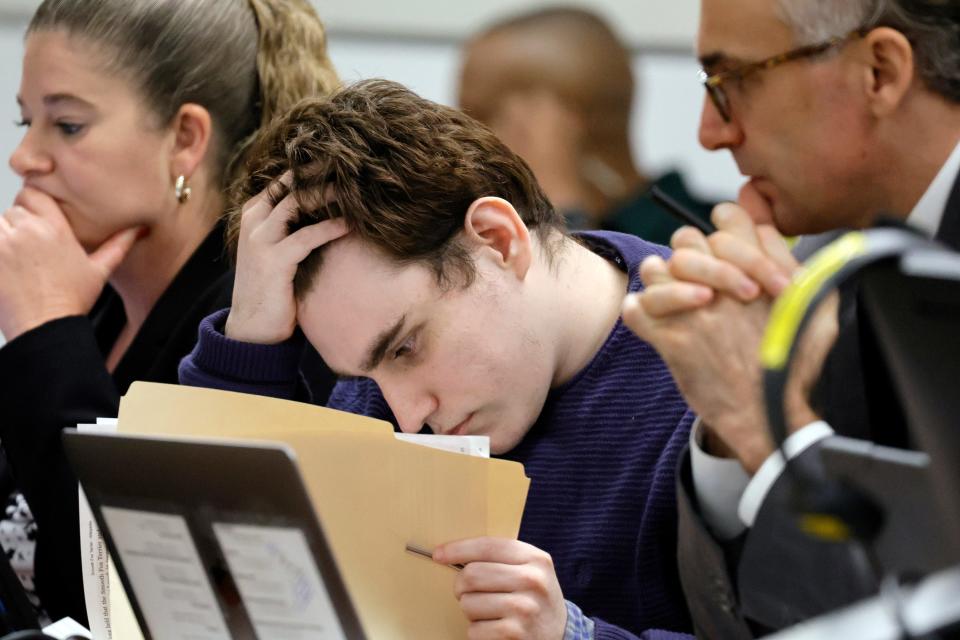
Psychologist rebuts defense's claim Cruz had fetal alcohol syndrome disorder
Scott met with Cruz over three days and 21 hours in March and diagnosed the gunman with borderline and antisocial personality disorders — not fetal alcohol syndrome disorder, contrary to the diagnoses of experts hired by the gunman's defense team.
Scott said he found evidence that Cruz was faking or exaggerating his symptoms and could control his behavior when he wanted to. His testimony is at odds with the portrait of Cruz the defense team has spent weeks building — one of a child rendered "irretrievably broken" by his biological mother's substance abuse.
Video clips of Scott's interview with Cruz interspersed the psychologist's testimony. In them, Cruz recited the facts of school shootings that preceded his with a cold clarity and the lessons they taught him.
"They went as fast as possible, and the police didn't do anything," he said. "It means if I go on a school campus, police are not going to do anything. I have a small opportunity to shoot people for maybe 20 minutes."
He had fewer than seven before he abandoned his rifle and blended into the crowds of fleeing students on Feb. 14, 2018.
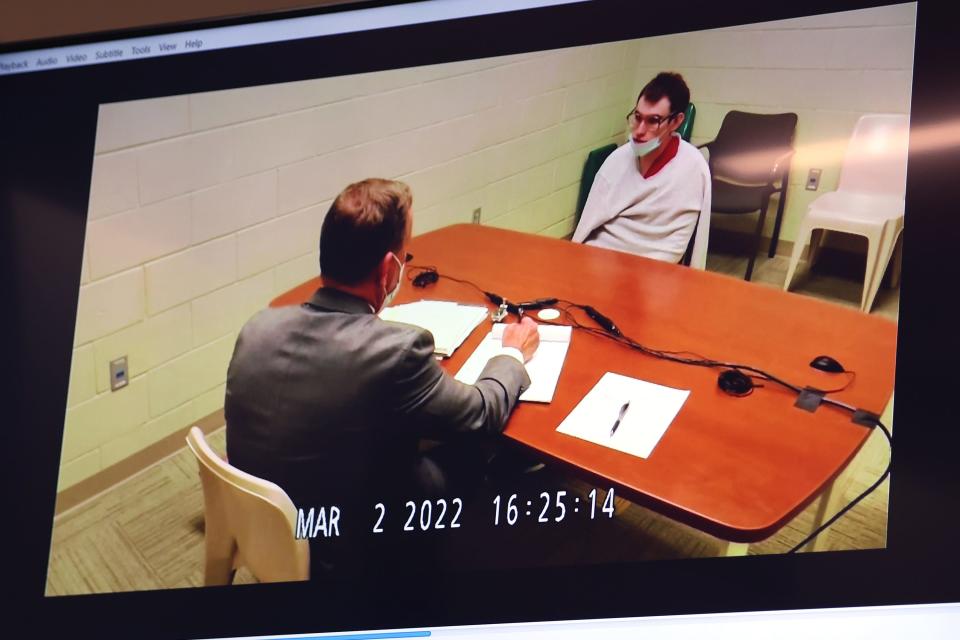
Planned and organized aggression are not characteristics of fetal alcohol syndrome, Scott told the jurors Monday. He pointed to Cruz's study of mass shootings in the months leading up to the massacre, documented in an extensive internet history log read aloud to jurors, as evidence of Cruz's ability to remember and carry out a plan.
"It involves a wide range of thinking skills," Scott said.
Hannah Phillips is a journalist covering public safety and criminal justice at The Palm Beach Post. You can reach her at hphillips@pbpost.com.
This article originally appeared on Palm Beach Post: Parkland shooter trial: Gunman 'got lucky,' Cruz's defense says

